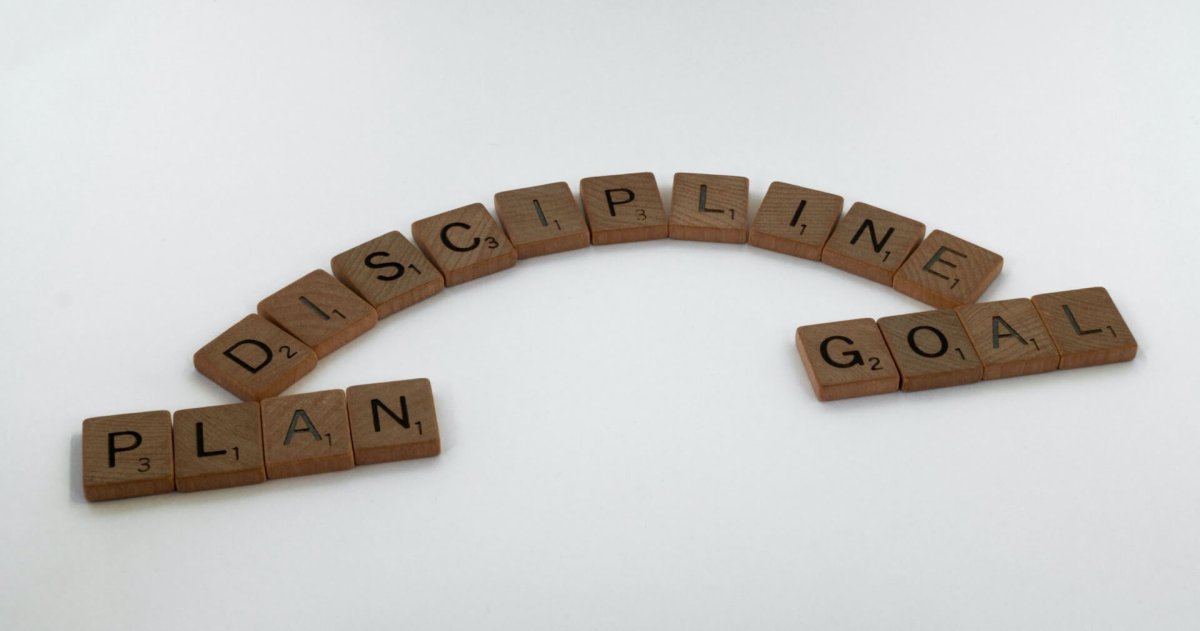Self-discipline and willpower are undeniably crucial assets in achieving goals and living a fulfilling life. As you embark on this journey of personal growth, you may find yourself wondering why these traits matter so much and how you can develop them.
In this article, we explore why self-discipline and willpower are important and the ways to enhance these skills for a better, more productive life.
Willpower, sometimes known as determination or self-control, is the ability to resist instant gratification and maintain focus on long-term objectives. On the other hand, discipline is the practice of regulating your thoughts, emotions, and behaviors according to your goals and principles.
Both of these qualities work together to help you overcome temptations and challenges as you strive to actualize your ambitions and aspirations.
Key Takeaways
- Strength of will and self-discipline are interrelated qualities that help individuals achieve goals and lead a fulfilling life.
- Developing these skills involves practice, mindfulness, and incorporating new habits and routines into daily life.

What is willpower?
It is your ability to resist short-term temptations to help you achieve long-term goals. It’s like a muscle in your mind that helps you override desires and stay focused on what matters in the long run. The psychology behind the strength of will involves three key areas of the prefrontal cortex: I will, I won’t, and I want.
Various factors can influence it, such as stress, fatigue, emotions, motivation, and beliefs. For instance, when you’re tired or under pressure, it’s harder to resist temptations. On the flip side, having strong willpower can lead to numerous benefits like improved health, happiness, productivity, and success.
But how can you bolster your it? Practicing mindfulness and understanding the famous marshmallow test can be helpful. The marshmallow test, also known as the delay of gratification test, is a study that highlights the importance of willpower, showing that those who can delay gratification are more likely to succeed in various aspects of life.
Examples of Willpower
Imagine trying to hold back from eating junk food while you’re on a weight loss journey or quitting bad habits like smoking or drinking. Willpower is being in control of your actions and making the right decisions. It’s the driving force behind sticking to a study schedule or diligently working towards a project deadline, even when it’s tough. Consider saving money or paying off debt, you need strength of will to resist temptations to spend impulsively.
Some inspiring examples of people who demonstrated remarkable willpower include Mahatma Gandhi. His nonviolent resistance movement against British colonial rule required immense self-discipline. Then there’s J.K. Rowling. She persevered in writing Harry Potter, even after being rejected by 12 publishers. Does the name Elon Musk ring a bell? His vision and innovation in creating SpaceX, Tesla, and Neuralink are a testament to his incredible strength of will. And don’t forget David Goggins, who transformed his life from an overweight and depressed man to a Navy SEAL and ultramarathon runner.
In each case, willpower played a crucial role in achieving success and overcoming obstacles. Now, think about how you can harness your willpower to reach your goals!
How to develop willpower
Did you know that it can be strengthened with practice, just like a muscle? Here are some tips and strategies to boost it:
- Set clear and realistic goals: Define what you want to achieve and break it down into smaller, manageable steps. This helps you stay focused and motivated.
- Monitor your progress and reward yourself: Track your achievements and celebrate your accomplishments. This reinforces your discipline and keeps you on track.
- Manage stress and energy levels: Learn how to cope with stress and maintain a balanced lifestyle. This allows you to devote more energy to cultivating your willpower.
- Use positive affirmations and visualization: Reinforce your determination with positive mantras and visualize yourself achieving your goals. This supports your mental resolve.
- Seek support and accountability: Share your goals with friends, family, or colleagues. They can encourage you and hold you accountable, further boosting your strength of will.
- Learn from mistakes and failures: Don’t be afraid to make mistakes. Instead, see them as learning opportunities and use them to refine your approach.
What is self-discipline?
It is the ability to control your desires, impulses, and emotions to achieve long-term goals. It’s what helps you stick to your decisions and plans, even when it’s difficult or uncomfortable.
What’s the difference between self-discipline and willpower?
While the strength of will is the initial force that helps you resist temptations or distractions, the second one is the sustained habit that keeps you on track.
Some benefits of having strong self-discipline include:
- Improved time management and reduced procrastination.
- Boosted confidence as you see yourself accomplishing goals and making progress.
- Enhanced decision-making skills, enabling you to make choices that align with your long-term objectives.
- Increased mental toughness and resilience, helping you persevere through challenges, setbacks, and changes in your life.
Examples of self-discipline
Waking up early and sticking to a morning routine requires self-discipline, doesn’t it? You’ve experienced the challenge of getting out of bed to kick-start your day, but the rewards are worth it. Building routines can help shape your day, so it’s important to develop it over time.
Ever tried reading books or taking courses to learn new skills? Yes, that’s another example of discipline. Personal growth is dependent on taking the time to learn, and that requires dedication and persistence.
Maybe you’ve considered working on a passion project or starting a side hustle. To be successful, you need to commit and utilize self-discipline to make progress. It can be tough to balance work, life, and a side project, but the results can be life-changing.
Some people have demonstrated remarkable self-control throughout their lives. Think about Benjamin Franklin and his 13 virtues plan for moral perfection. Oprah Winfrey’s journey from poverty and abuse to becoming a media mogul and philanthropist is another great example. Kobe Bryant’s legendary work ethic and dedication to basketball also inspired many. And how can we forget Marie Curie’s groundbreaking research on radioactivity, despite facing sexism and discrimination?
How to develop self-discipline
Identify your values and priorities. Start by understanding what’s truly essential to you. Are you driven by career success, family, health, or personal growth? Align your actions with your values.
Create a schedule and a to-do list. Plan your day and make a to-do list that includes tasks you need to complete, which empowers you to stay focused on your priorities.
Eliminate distractions and temptations.To boost your discipline muscles, remove potential distractions from your environment. This may include silencing your phone, closing social media tabs, or finding a quiet workspace.
Break down big tasks into small steps.Overwhelming tasks can make discipline feel impossible. By breaking them down into smaller, more manageable steps, you’ll stay motivated and make steady progress.
Develop a growth mindset and a positive attitude. Embrace challenges as opportunities to grow and celebrate your small victories along the way. A positive mindset empowers you to keep pushing forward, even in the face of setbacks.
Best books on self-discipline and willpower
1. The Willpower Instinct by Kelly McGonigal: Based on a Stanford University course, this science-based guide helps you understand and harness willpower. If you’ve ever struggled with feelings of self-doubt, this book will teach you how to persist and stay motivated.
2. The Power of Habit by Charles Duhigg: Dive into the fascinating world of habits! Learn how they work, and more importantly, how you can change them for your personal and social benefits. By developing good habits, you’ll boost your productivity and self-esteem.
3. Atomic Habits by James Clear: We all know that small changes can lead to big results. With a practical and proven framework, this book teaches you how to build good habits and break bad ones, contributing to your growth and overall resilience.
4. No Excuses! by Brian Tracy: Get ready to be motivated and inspired with this comprehensive guide on developing self-control in every area of your life. Don’t let lack of energy or negative beliefs hold you back anymore!
FAQ
How are willpower and self-discipline related?
Think of willpower and self-control as two sides of the same coin – both essential for achieving your goals and leading a fulfilling life. Influenced by factors such as stress, motivation, beliefs, and values, these skills can be improved with practice and consistency.
Willpower is the ability that helps you resist temptations or distractions, while discipline is the sustained habit that keeps you sticking to your decisions or plans. Together, they create a powerful combination for success, working hand in hand to bring your goals to fruition.
How can I measure my willpower and self-discipline?
Although there’s no definitive way to measure willpower and discipline, you can use a few indicators to get an idea of where you might stand. Some methods include:
- Self-report scales or questionnaires: These tools can help assess your personality traits, attitudes, or behaviors related to willpower and self-control.
- Experiments or tasks: Try activities that test your ability to resist temptation, delay gratification, or persist despite challenges.
- Feedback from others: Ask people who know you well or observe your performance for their evaluation of your self-discipline.
- Self-reflection: Analyze your own goals, actions, results, and challenges to pinpoint areas where you might need to improve.
How can I maintain my willpower and self-discipline in the long term?
Maintaining your willpower and self-discipline in the long term requires constant effort and commitment. However, you can use some tips and strategies to make it easier:
- Review and revise your goals regularly: Keeping your objectives in check helps you stay focused and motivated.
- Celebrate your achievements and reward yourself: Acknowledging your progress encourages more efforts in the right direction.
- Seek support and accountability from others: Sharing your goals with close friends or family members can provide extra motivation and help you stay on track.
- Manage your stress and energy levels: Practice relaxation techniques, such as meditation or yoga, to keep stress at bay and maintain mental stamina.
- Learn from your mistakes and failures: Don’t be disheartened by setbacks. Instead, use them as learning opportunities to improve and grow.
- Develop a growth mindset and a positive attitude: Embrace challenges and believe in your ability to develop and achieve your goals.
What to do next?
You may want to read “Why Self-Discipline is Better than Motivation?“
Resources
YouTube video on Willpower
YouTube video on Self-Discipline
Image from Unsplash




